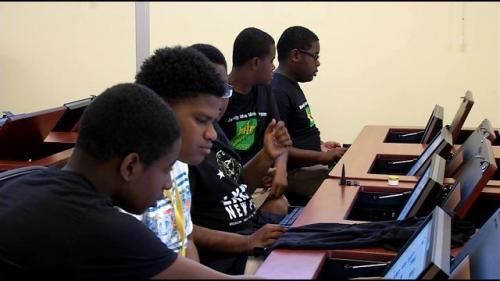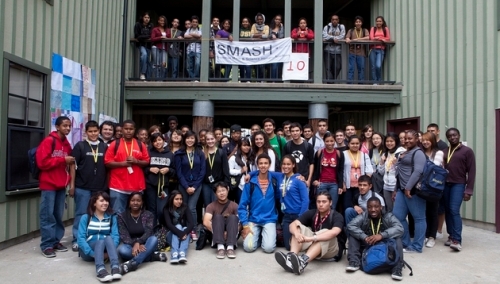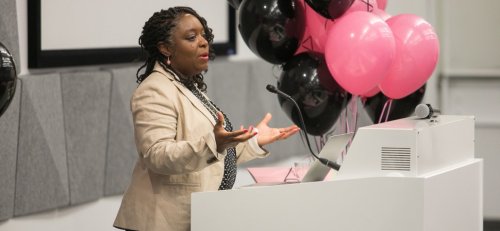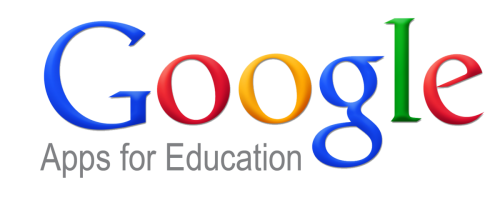July 21, 2018
youngintelligentandblack
blacks in tech, charter schools, colleges, education, elementary schools, gold medal high school, high schools, high shcools, math, middle schools, prodigy, science, STEM, teachers, tech, technology
21st Century Community Learning Centers, african american students, africatown, black in california, black in seattle, black students, blacks, blogs, colleges, education, entertainment, high schools, kids, learning, los angeles, math, middle schools, parents, public schools, SAT, schools, science, seattle africatown, seattle times, teachers, tech, technology, umojafest seattle

Applicant Information
STATE GRANT PROGRAM APPLICATION TIMELINE
Many states around the country are conducting competitions to award 21st Century Community Learning Center grants. The
State Contact List now includes links to State websites and recent RFPs.
TYPES OF PROJECTS
Each eligible entity that receives an award from the state may use the funds to carry out a broad array of before- and after-school activities (including those held during summer recess periods) to advance student achievement. These activities include:
Remedial education activities and academic enrichment learning programs, including those which provide additional assistance to students to allow the students to improve their academic achievement;
Mathematics and science education activities;
Arts and music education activities;
Entrepreneurial education programs;
Tutoring services, including those provided by senior citizen volunteers, and mentoring programs;
Programs that provide after-school activities for limited English proficient (LEP) students and that emphasize language skills and academic achievement;
Recreational activities;
Telecommunications and technology education programs;
Expanded library service hours;
Programs that promote parental involvement and family literacy;
Programs that provide assistance to students who have been truant, suspended, or expelled to allow them to improve their academic achievement;
Drug and violence prevention programs;
Counseling programs; and
Character education programs.
21st Century Community Learning Center grants
April 8, 2018
youngintelligentandblack
charter schools, gold medal high school, Kimberly Bryant, math, middle schools, prodigy, science, startups, STEM, technology
biology, blacks, colleges, computers, education, entertainment, family, gold medal schools, grades, kids, learning, math, parents, prodigy, SAT, science, students, teachers, technology

The Summer Math and Science Honors Academy, known as SMASH, gives students of color guidance and exposure to STEM subjects. Many students of color don’t have such classes available in their schools, but academies like SMASH help give them the foundation they need to excel in STEM careers even if such programs are missing from their daily curriculum. The program takes places every summer for three years for each student but also offers benefits throughout the school year. SMASH students have access to special college counselors and receive tailored SAT prep classes.
Read more VISIT THE WEBSITE
February 28, 2018
youngintelligentandblack
blacks in tech, education, Kimberly Bryant, math, prodigy, startups, STEM, tech, technology
black girls code, black students, blacks, children, classes, college, colleges, computers, education, entertainment, gold medal schools, high schools, Kimberly Bryant, math, parents, schools, science, teachers, technology

Kimberly Bryant is the founder and CEO of Black Girls Code, a nonprofit that teaches computer programming to African-American girls.
Black Girls Code, a non-profit that teaches computer programming to African-American girls, opened its first permanent New York office inside of Google’s New York headquarters.
Read more FULL ARTICLE
May 14, 2016
youngintelligentandblack
blacks in tech, charter schools, colleges, education, elementary schools, gold medal high school, high schools, math, prodigy, schools, startups, technology
black students, blacks, children, classes, colleges, education, entertainment, family, gold medal schools, high schools, kids, learning, music, parents, prodigy, public schools, schools, science, students, technology

Wolfram Math World: Need help with a type of math? Don’t understand math terminology? Head to this site for all the guidance and materials you’ll need to master any mathematical problem.
Visit Wolfram Math World
May 3, 2016
youngintelligentandblack
blacks in tech, charter schools, colleges, education, elementary schools, gold medal high school, high schools, prodigy, schools, startups, teachers, tech, technology
black students, blacks, colleges, computers, education, entertainment, family, gold medal schools, high schools, itunes, math, middle schools, parents, prodigy, schools, students, teachers, technology

| Posted by Taylor Gordon
A group of college professors and administrators in Pennsylvania have come together to launch a new initiative that aims to attract more Black men into the teaching profession.
The professors and administrators come from several universities and colleges, including Indiana University of Pennsylvania, Point Park University and Community College of Allegheny County.
Together, they have launched the Black Men Teaching Initiative, which is using workshops, mentorship programs and other resources to persuade more African-American men to attend college and consider a career in teaching.
Read more FULL REPORT
February 24, 2016
youngintelligentandblack
blacks in tech, charter schools, colleges, education, elementary schools, gold medal high school, high schools, prodigy, schools, teachers, tech, technology
black students, blacks, children, classes, college, computers, entertainment, family, gold medal schools, grades, high schools, kids, learning, math, middle schools, parents, prodigy, SAT, schools, science, students, teachers, technology

The backbone of mentoring’s infrastructure is the growing Mentoring Partnership Network that MENTOR helps build and support.
MENTOR is scaling impact by developing and supporting a national network of affiliate Mentoring Partnerships. Mentoring Partnerships are non-partisan, public-private organizations that galvanize local or statewide mentoring movements, providing the leadership and infrastructure necessary to support the expansion of quality mentoring relationships. Mentoring Partnerships serve a unique role as a clearinghouse for training, resources, awareness, and advocacy, providing the critical link between MENTOR’s national efforts and local organizations and programs that foster and support quality mentoring relationships. Mentoring Partnerships are designated MENTOR affiliates that inform and distribute our research and resources.
Mentoring Partnerships are focused on the following key priorities:
Advance the quality of the local mentoring field by building relationships with new and existing mentoring programs and provide capacity building trainings and technical assistance grounded in evidence-based approaches.
Engage a wide variety of public and private stakeholders to increase both the number of volunteer mentors as well as resources for the local mentoring field.
Collect data on a regular basis to describe the impact of mentoring in the broader community and identify gaps in the range of services needed.
Expand public and private support and investment in mentoring through public awareness and advocacy efforts that foster communities that prioritize quality youth mentoring. Mentoring Partnerships have developed solid, field-tested solutions to some of the mentoring movement’s greatest challenges.
Read more FULL REPORT
February 20, 2016
youngintelligentandblack
blacks in tech, charter schools, education, gold medal high school, high schools, prodigy, schools, teachers, tech, technology
black students, blacks, children, colleges, computers, education, entertainment, gold medal schools, high school, high schools, kids, math, parents, public schools, SAT, science, technology

Their achievements of the past continue to help shape and define the essence of science, technology, engineering and mathematics (STEM) today. This is the legacy of such early innovators as: Benjamin Banneker, the mathematician who helped map out and plan the city of Washington, D.C.; Charles Drew, the surgeon who pioneered blood transfusion; Garret Morgan, who invented the gas mask and the modern traffic light; botanist George Washington Carver, whose innovations with the peanut and other plants continue to enrich our lives and made him a trusted science advisor to such luminaries as President Teddy Roosevelt and Henry Ford; and Marie Daly, the first African American woman to receive a Ph.D. in chemistry, and an early innovator in the study of heart disease.
Read more FULL ARTICLE
February 11, 2016
youngintelligentandblack
blacks in tech, charter schools, colleges, education, elementary schools, gold medal high school, high schools, prodigy, schools, teachers, tech, technology
black students, blacks, children, classes, college, colleges, computers, education, entertainment, family, gold medal schools, high schools, kids, learning, math, middle schools, music, parents, politics, prodigy, public schools, SAT, schools, science, students, teachers, tech, technology

Smarter Balanced members voted to approve the initial achievement levels for the math and English assessments that will be administered in 17 states and one territory this school year. The achievement levels help provide a more accurate picture of individual student performance, and the vote marks an incredibly important milestone in the development of the Smarter Balanced Assessment System.
Achievement Level Setting was an inclusive, collaborative process that involved an unprecedented level of educator and public input. More than 2,500 educators, parents, and other interested stakeholders provided input during the Online Panel. Their recommendations were shared at In-Person workshops in Dallas with nearly 500 teachers, school leaders, higher education faculty, parents, community leaders, and other stakeholders. Participants reviewed test questions and determined threshold scores for four achievement levels for each grade in both subjects. In addition, a cross-grade review committee comprised of 72 members took results from both the Online Panel and In-Person workshops into consideration as they developed recommendations aligned across grades to reflect student progress from year to year.
It’s important to remember that achievement levels are a starting point for discussion about the performance of individual students and groups of students. In addition to achievement levels, there are other ways to evaluate academic progress of students and schools. Smarter Balanced states unanimously approved a position paper that provides guidelines for how scores and achievement levels can be used and interpreted.
We know that new content standards set higher expectations for students. That’s why the new assessments are designed to evaluate student performance against those higher standards. It is therefore not surprising that we may see a decline in student scores this year. However, over time the performance of students will improve.
In the coming months, Smarter Balanced states will present the approved achievement level recommendations to policymaking entities that have the authority to formally adopt achievement levels in each state.This authority typically rests with the state board of education.
To learn more about the Achievement Level Setting process, visit the Achievement Levels page.
Read more FULL REPORT
May 11, 2015
youngintelligentandblack
blacks in tech, charter schools, colleges, education, elementary schools, gold medal high school, high schools, middle schools, prodigy, schools, teachers, tech, technology
black students, blacks, classes, college, colleges, computers, education, family, friends, gold medal schools, grades, high schools, kids, math, middle schools, music, parents, politics, prodigy, public schools, SAT, schools, science, students, teachers, tech, technology

Members of the Smarter Balanced Assessment Consortium have voted to approve initial achievement levels for the mathematics and English language arts/literacy (ELA) assessments that will be administered in 17 states and one territory this school year. The vote marks an important milestone in the development of the assessment system. READ THE PRESS RELEASE
LEARN MORE ABOUT ACHIEVEMENT LEVELS
Smarter Balanced Hires Deputy Executive Director
The Smarter Balanced Assessment Consortium (Smarter Balanced) has appointed Luci Willits as its deputy executive director. Willits joins the state-led consortium December 8. As deputy executive director, Willits will focus on strategy and state services, overseeing communications, policy, and partnerships with higher education. LEARN MORE
Field Test Report Now Available
A report on the Smarter Balanced Field Test is now available. This report presents results from state surveys given to students and adults in 13 Smarter Balanced member states. The Field Test or “test of the test” was administered in the spring of 2014 to more than 4.2 million students across the Consortium, and provided teachers and schools an opportunity to gauge their readiness in advance of the operational assessments in spring 2015. LEARN MORE
New Resources Available on the Support for Under-Represented Students Page
To prepare states across the Consortium for successful implementation of the Smarter Balanced Assessment System, a variety of updates have been made to the Support for Under-Represented Students page. Updated versions of the Usability, Accessibility, and Accommodations Guidelines, Accessibility and Accommodations Factsheet, and Usability, Accessibility, and Accommodations FAQs are now available.
Read more FULL REPORT
April 11, 2015
youngintelligentandblack
blacks in tech, charter schools, colleges, education, elementary schools, gold medal high school, high schools, prodigy, schools, teachers, tech, technology
black students, blacks, classes, colleges, education, entertainment, family, gold medal schools, google, google apps, grades, high schools, kids, math, middle schools, music, parents, politics, public schools, SAT, schools, seattle, technology

Steps to transition your medium-sized business, educational institution, or government agency to Google Apps. Includes topics such as email configuration, account provisioning, data migration, mobile device management, and more.
Read more FULL RERORT
Older Entries








